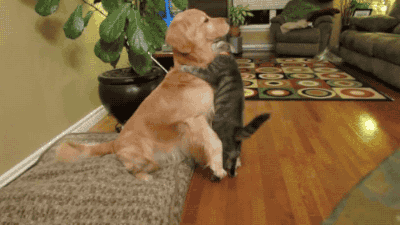27. Attend to "bids" for connection ... it's a key behavior in healthy relationships
Some of our actions have far more impact than others. This key behavior sets healthy relationships apart from unhealthy ones.
Data point of the week
According to a study by Cigna, 1 in 4 Americans rarely or never feel as though people really understand them.
This may be because of how people respond to what relationships expert, Dr. John Gottman, calls “bids for connection.”
Gottman has over forty years of experience studying what makes marriages work … or not. (Marriages get a lot more research attention than friendships, but we can assume these findings are true of all relationships.)
Gottman has discovered that how people respond to “bids for connection” is a key behavior that sets healthy relationships apart from unhealthy ones. Bids are gestures—subtle and explicit—that request attention and initiate connection. Bids come in many forms such as asking a question, sharing a story, expressing affection, voicing a concern, etc.
There are three types of responses to bids:
Turning away—being distracted, ignoring, and using non-committal responses like “uh-huh.”
Turning against—responding with anger, irritability, criticism.
Turning toward—responding with attention, engagement, interest, positivity.
Gottman found that couples who were still married after six years turned towards each other 86% of the time on average, whereas couples that divorced averaged 33%.
Reflection
Don’t you hate it when you’re talking to someone and it’s obvious that they’re not really paying attention? I do. And it’s become more common with our phones constantly competing for our attention. Of course, I’m guilty of this too. Sometimes it requires conscious effort to notice a bid and pull myself away from what I’m doing.
If you imagine each of your relationships as having their own emotional bank account, every positive interaction (turning toward) is a deposit. Every turning away is a small withdrawal, while turning against is a big one. If the bank account gets overdrawn, the relationship flounders.
It’s not just noticing and responding to bids that matters. We can also become better bidders by communicating our asks more clearly. And if our bid is met with a turning away response, instead of giving up, we can re-bid with a clearer articulation of what we want. For example, “I was hoping to talk to you. Can you let me know when you’re done with ____?”
Connection Skill & Action Step: Attend to bids for connection
To practice this skill, pay attention to bids for connection.
Notice when others make bids for your attention and how you respond. Try to practice “turning toward,” giving them your attention, and really listening. If you can’t, then communicate that rather than ignoring them. For example, “Hold on, I’m in the middle of ___. Can you wait a minute?”
Notice how you make bids for attention and how others respond. Are your bids clear? Is there anything you can do to become a better bidder?
Questions to reflect on or to spark conversation. Please share your responses in the comments—we love hearing from you!
Have you noticed changes over time in the way you—and others—respond to bids for connection? If so, what do you think has influenced those changes?


